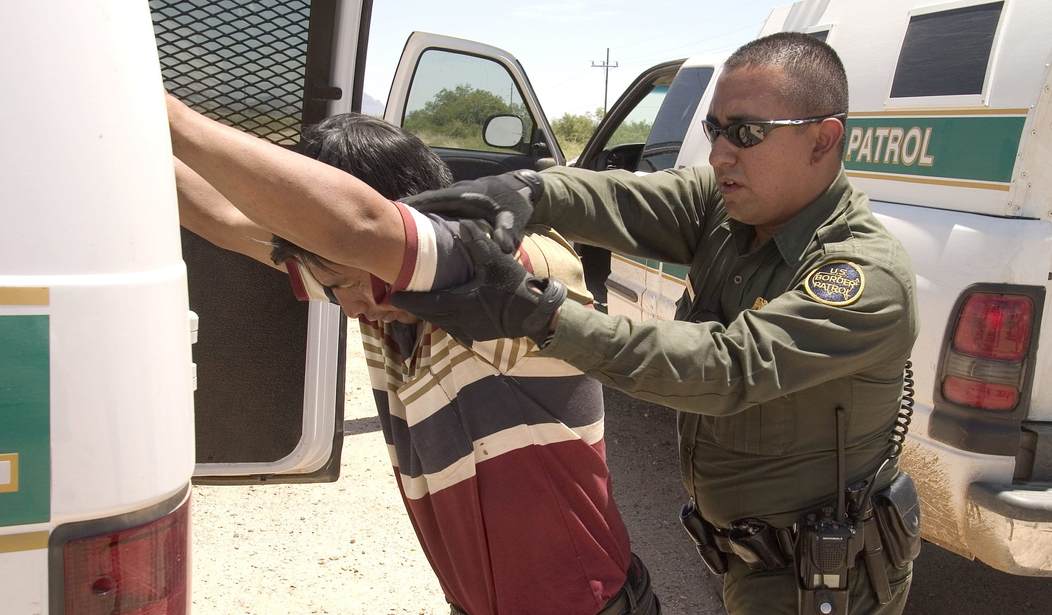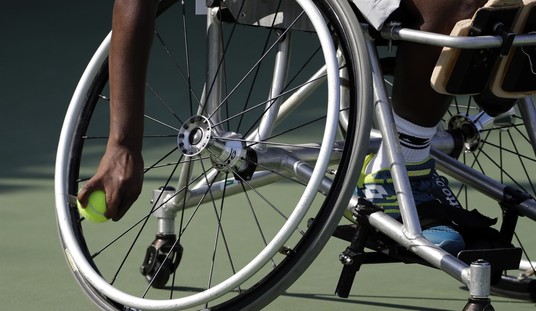Rep. Duncan Hunter (R-Calif.) said the federal government has to “secure the border and shut up,” describing proper security at the border as the key to preventing a nuclear weapon from entering the U.S. as well as thwarting the flow of illegal drugs.
“If you can smuggle in 5,000 pounds of coke into Florida you can smuggle in 5,000 pounds of anything, right?” Hunter, a member of the House Armed Services Committee, said at the Conservative Political Action Conference (CPAC). “The same way you get drugs in — it’s the same system throughout the entire country. The same way you get drugs and illegal aliens here into the U.S. — that’s how you would get a nuclear device into the U.S. So you have to stop that.”
Hunter also called on the U.S. to “tactically nuke Iran’s nuclear facilities.”
“There’s only one way to take out that concrete and steel that goes a mile underground — it’s with a tactical nuclear weapon — don’t think mushroom cloud,” he said. “It goes deep down and makes the place inhospitable for years. You take away their ability to hit you. You secure the borders and you build our conventional interceptor systems where we need them, and we are doing as much as we can at that point.”
During CPAC, Hunter explained that U.S. officials only check 1 percent of the boxes coming into the country. He called on the federal government to “check everything” and secure the border.
“Secure the border and shut up. I don’t care,” he said, mentioning the illegal immigration debate in the 2016 presidential race. “Do one thing. Instead of doing nothing how about we just do one thing? Secure the border, so then what you take off the table is the ability for terrorists to get nuclear weapons into the country through the borders.”
Hunter said checking everything coming into the U.S. is challenging because it is expensive. He also pointed out that the U.S. would have difficulty responding to a possible attack from a rouge terrorist group operating in a certain country since the government there would likely disavow the act.
“So then how do we make it so that you don’t want to do that anymore? We can’t. That’s the answer. The mutually assured destruction model no longer works,” he said.
Hunter said the U.S. has to prepare for a conventional missile attack in addition to beefing up border security. According to Hunter, the U.S. must simultaneously prevent a terrorist from coming across the Mexican border with a suitcase, a ship coming in with thousands of pounds of cocaine and nuclear missile material.
“Poland would have been a great place to put a missile defense system and our interceptors. Russia didn’t like it, so the president said we’re not going to do it. Kuwait would be a great place,” he said. “You can hit anything coming from Iran going anywhere if you are in Kuwait. The easiest time to hit a missile as it goes toward you is when it launches because it’s going slowly.”
After securing the border, Hunter said the U.S. can prevent a missile attack with the right technology. He argued that President Obama has set the country back in terms of research and development in the missile defense area.
“Star Wars is not a fake thing. We can shoot bullets out of the sky with bullets and it’s awesome,” he said.
Hunter argued that the U.S. has to be “everywhere” all the time and must “police the world.”
“We’re going to have to know what everybody is doing, where they are at, all the time, if not us, who? They are not going to blow up — name your country that doesn’t really matter as much as America — Madagascar,” Hunter said, repeating a suggestion form an audience member.
Sen. Deb Fischer (R-Neb.), a member of the Senate Committee on Armed Services, focused on North Korea, arguing that the situation is being overlooked at this time. She warned that North Korea currently possess several hundred ballistic missiles.
“The vast majority of which are short- to medium-range, and these shorter-range missiles are a clear threat to our allies in Japan and in South Korea. They also pose a threat to the thousands of American service members who serve in South Korea,” she said at the conference.
Fischer said an attack on the homeland is a threat the U.S. has to take the “most seriously.” To counter the threat posed by North Korea, Fischer recommended that the U.S. deploy the Ground-Based Midcourse Defense system to intercept warheads in space.
“North Korea has developed two intercontinental nuclear ballistic missiles capable of hitting the United States,” she said, calling the system expensive and fragile. “We’ve seen repeated funding cuts and that has taken a toll on the system.”
Fischer argued that President Obama’s “ill-advised” decisions have “delayed the system’s progress by years” while the threat has continued to develop.
“North Korea’s ballistic missile arsenal is increasing in size and strength and accuracy as it continues to conduct nuclear tests,” she said.








Join the conversation as a VIP Member